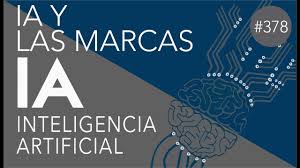How artificial intelligence redefines communication

It is no longer enough to rank well in a search engine; brands now have to be present in the responses generated by AI.

CRISTINA VIÚDEZ Madrid - MAY 30, 2025
In just a few years, artificial intelligence (AI) has gone from being a futuristic promise to becoming an everyday presence. In fact, the use of AI-based tools is skyrocketing in Spain, and it's expected that more than 18 million people will be using them regularly by 2031. The speed is exponential: ChatGPT, globally, reached in just five days the number of users it took Netflix three and a half years to achieve in 1999. This boom isn't just a matter of numbers. It entails a profound shift in channels , languages, and consumer expectations.
From virtual assistants to recommendation algorithms, AI is already part of our decisions, our consumer habits, and, increasingly, our way of communicating . But how are consumers experiencing this revolution? How is it really changing the way we get information, interact, and shop?
The answer is not unequivocal: the rise of AI stirs mixed emotions. 57% of Spaniards say they are excited about its potential, highlighting benefits such as time savings, access to useful information, and task automation.
However, 43% express concern, especially about job losses, the erosion of human creativity , and, above all, the proliferation of fake content. In fact, 6 in 10 people admit to being concerned about the spread of fake news generated by AI. And 44% are uncomfortable with their personal data being used to train algorithms. This poses an urgent challenge: building AI that is transparent, ethical, and understandable to everyone.
Despite these adoption barriers, AI is beginning to occupy other, more personal spaces. Forty-five percent of respondents are interested in having a "virtual friend" to chat with or ask for advice . This reflects a progressive openness to new forms of interaction mediated by technology, although not without some hesitation.
At the same time, one of the areas most impacted by this transformation is information search. Traditionally, we turned to search engines like Google to find answers. Today, tools like ChatGPT and personal assistants are taking over that role, with one key difference: they don't return a list of links, but rather directly offer the answer we're looking for.
This conversational model is rapidly gaining ground. Users value immediacy, personalization, and a more human tone of interaction. As a result, brands face a new challenge: it's no longer enough to rank well in a search engine; they now need to be present (and well represented) in the responses generated by AI. This forces them to rethink their digital presence and reputation strategies.
Furthermore, AI represents a huge opportunity for brands, but also a great responsibility. The study reveals that consumers particularly value brands' transparent and respectful use of these technologies. It's not just about using AI to optimize campaigns or automate processes, but doing so with meaning, purpose, and empathy.
In this context, artificial intelligence doesn't replace human talent; it amplifies it. It allows us to go beyond the obvious, anticipate consumer needs, and deliver relevant experiences at the right moment. But it also demands more of us: to think critically, ensure the authenticity of our content, and keep humanity at the center of the conversation.
AI redefines communication because it redefines people. It's changing us as users, as citizens, and as a society. And it's doing so at breakneck speed. In this new scenario, the key won't be mastering technology, but knowing how to use it intelligently, ethically, and creatively.
Cristina Viúdez is head of research and reporting at WPP Media.






